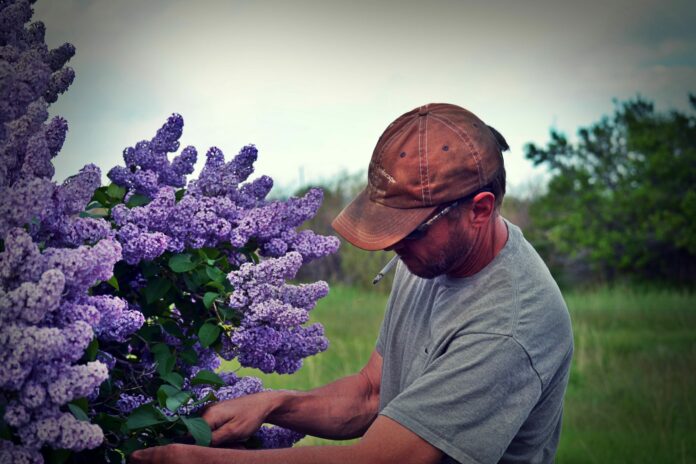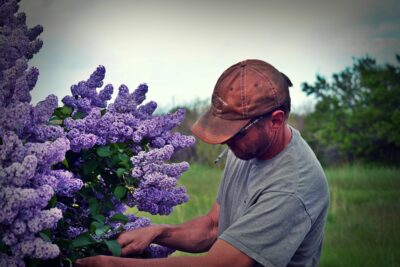
Part 3 of 3
By Karen Crowson

If you’re talking numbers of folks and businesses, 1910 proved to be the peak year of Soldier. Population of the Camas Prairie was reported in the Hailey Times at 4,900 and it is estimated 200 people cheerfully and peacefully celebrated Settlers Day in Soldier that year. The Camas County Courier reported not one arrest was made or one fight noted.
Soldier Is Booming Fast, Busting Slowly
Businessmen of note during the 1910s were merchants Warren Kellog, barber Smith Arvett, abstractor Leon Fuld, blacksmiths J.M. Dick Richlien and W.I. Sonner, attorneys J.W. Roudebush, Lumberman Naser and J.L. Baxter, and Housman’s Real Estate. The Housman family was a large landowner in Soldier with four homes for rent. There was also Cook’s Cash Store, Wardrop’s Livery Station, Mollie’s Café, Bashford’s Pioneer Store, the Mint Saloon, F.H. Gifford’s harness and saddlery shop, a photography shop owned by E.C. Coy, and J.E. Campbell Confectionery Store, a store that carried candy in bulk barrels.
Even with 1910 being a peak year, 1911 proved to be the cancer that would—slowly—destroy the town of Soldier. It was during this time that the opera house, Goff’s Hall, was used as a theater and was operated by Russell and Parker with admissions costing 10 to 15 cents. The Hall was also used for Lyceum meetings, dances, plays, and various programs. Every Saturday night, a dance was held, rotating between Hot Springs Ranch, Manard, Soldier, and the Soldier Creek schoolhouse. Margaret Perkins, a resident of Soldier at that time, recalled these events, saying, “Each gal would spend much time making the most beautiful box she could, filling it with scrumptious delicacies, then hoped and prayed that a certain young man would bid the highest for her box.”
Still growing, and unaware of the demise ahead, Soldier now had the Finch Hotel, a barber shop owned by Charlie Gaskill, a bakery, and even a board sidewalk that extended the full length of the block on the north side of Main between Gooding and Bliss streets.
Mollie Rowland, the owner of Mollie’s Café, was known around Soldier as an easygoing woman with a very large family. Rowland was known to open her home up to anyone needing a place to stay and in 1911 Ben Higgs shot and killed Joe Jones in front of her café. Residents at the time seemed more concerned about the ‘o’ being shot out of the sign on the café than of the shooting itself.
A Traintrack Doesn’t Run Through It
Before the close of 1911, the Oregon Short Line Railroad bypassed Soldier two miles to the south, beginning the formation of Fairfield and the demise of Soldier. It led to a number of business sell-offs and pack-ups over the next several years.
Fowler’s Auto Garage sat on First Street South and was sold to Harry Giesler and Otis Peterson in 1914. Fowler’s Auto Garage was renamed Soldier Auto Company, selling Ford cars. George Perkins, as a young man, worked for Soldier Auto Company and it was noted he would walk from his home in Fairfield to work and back for $1.75 per week but later purchased a bicycle, making payments of 25 cents a week. It was also around this time that the Idaho Hotel was moved to Fairfield along with The Camas County Courier.
By 1915, Soldier consisted of Finny’s Feed and Livery Stable, George Johnson’s blacksmith shop, Cluer’s Hardware, a furniture and casket shop, a millinery, a framing shop with a printing shop in back, as well as a few remaining original Soldier businesses and establishments. The post office was now operating out of J.E. Campbell’s Confectionery Store. On Oct. 2, 1915, Martha Kellog took over as postmistress and children were eager to get the mail at the confectionery store from Postmistress Kellog due to all the barrels of candy.
On March 19, 1918, Violet Campbell took over as postmistress until the post office was discontinued on June 15, 1922, after serving the residents of Soldier for nearly 40 years. As more and more businesses left the town of Soldier for Fairfield, school for the remaining residents was held in the First National Bank building that still stands in existence today. Former Soldier resident Hugh Koonze remembers attending school in the bank building and says he enjoyed playing hooky.
Born in 1935, Koonze was born in the family home at Soldier and says he and all but one of his siblings were born there.
“Doctor Higgs was supposed to deliver me but he was so inebriated that the nurse, her name was Margaret Niesen, she delivered me. That doctor then had the audacity to send my dad a bill for $25. Well, needless to say, it didn’t get paid,” said Koonze.
Koonze’s father, Luther Koonze, was a granion hay farmer, farming 1,000 acres. Luther Koonze was the great-grandson of John and Rana Boyce, who owned and operated the Boyce Hotel. Great-great-grandson Hugh Koonze says the Boyce Hotel was later turned into a bed and breakfast but then sat vacant for many years before burning down.
Remembering Days Gone By
When recalling his childhood in Soldier, Koonze talks of his days skating on Soldier Creek in the winters and making snowmen. Koonze had a friend named Red that had stood on a stack of his father’s old 55-gallon fuel drums that were full of fuel vapor and had not been used in many years.
“He dropped a match in it and it just blew up,” said Koonze. “I remember it knocking him many feet over.”
Koonze idolized the older boys who would play cops and robbers because “they used real 22 shells,” said Koonze, “but no one was ever shot other than a hat punctured.”
Koonze has other more mundane memories of the town, too. He said when the opera house, Goff’s Hall, was converted into a stake-making plant for surveyors, he delivered stakes to Pocatello from there.
Slowly, as the years went by, Soldier began to fade. With most businesses moving to Fairfield, remaining residents began moving their homes to Fairfield and, by 1953, the Soldier Ranger Station on Soldier Creek, which had been in operation since 1909, moved to Fairfield.
Koonze even did some mining while living in Soldier and when asked if he had ever found a gold nugget, he smiled a big smile and said that he had, before turning to his wife, Afton Koonze, still smiling.
“This one right here,” he said with a smile still on his face and holding her hand, “Yeah, she’s great.”
Koonze married Afton Denny, granddaughter of the Baldwins of Soldier, in 1955, at the Community Church in Fairfield.
“We were the second couple married there,” Koonze said.
The Kooenzes both noted how terrible the winters were in Soldier during those days—snow would typically pile up above the fence posts—but talked about the dances held at Elk Creek fondly.
“People wouldn’t come home until early morning sometimes,” said Koonze.
In 1958, Koonze and his wife left Soldier and moved to Oregon, then to Boise and later to Mountain Home before returning to purchase the family ranch. When asked how he feels about the ghostly state Soldier is in today, he says, “I think it’s sad but there’s nothing you can do about it but progression in these larger towns around us is why small towns like Soldier die out.”
But Koonze leaves room for hope, saying, “It’s going to change again.”
The only remaining existence of that era for Soldier is the still-standing bank, and Goff’s Hall. The bank is now in use as a residence and Goff’s Hall is boarded up and used as storage. The once thriving town of Soldier, once full of life and teeming with stories of many, is now a ghostly shell of “what once was” on the Camas Prairie.


